
The Free Democratic Party is a liberal political party in Germany.

Germany is a democratic and federal parliamentary republic, where federal legislative power is vested in the Bundestag and the Bundesrat.
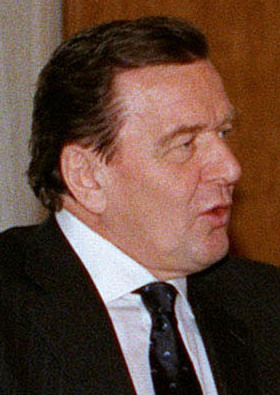
Federal elections were held in Germany on 27 September 1998 to elect the members of the 14th Bundestag. The Social Democratic Party (SPD) emerged as the largest faction in parliament for the first time since 1972, with its leader Gerhard Schröder becoming chancellor. The Christian Democrats had their worst election result since 1949.

Federal elections were held in Germany on 16 October 1994 to elect the members of the 13th Bundestag. The CDU/CSU alliance led by Helmut Kohl remained the largest faction in parliament, with Kohl remaining Chancellor in a narrowly re-elected coalition with the Free Democratic Party (FDP). This elected Bundestag was the largest in history until 2017, numbering 672 members.
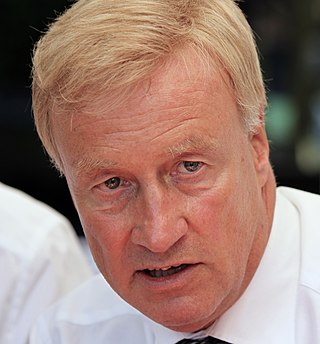
The 2004 Hamburg state election was held on 29 February 2004 to elect the members of the 18th Hamburg Parliament. The election was triggered by the collapse of the coalition government between the Christian Democratic Union (CDU), Party for a Rule of Law Offensive (PRO), and Free Democratic Party (FDP). The election saw a collapse in support for PRO which had split after its leader Ronald Schill left in 2003. The original party and Schill's new party captured 3.5% of the vote between them, down from 19.4% in 2001. A huge amount of support flowed to the CDU, which won 63 of the 121 seats in Parliament, forming a majority government. First Mayor Ole von Beust continued in office.
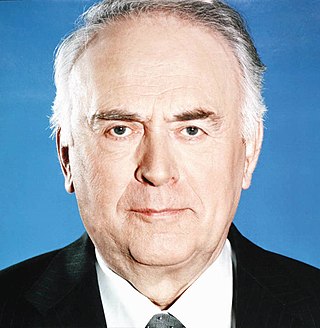
The 2002 Saxony-Anhalt state election was held on 21 April 2002 to elect the members of the 4th Landtag of Saxony-Anhalt. The incumbent Social Democratic Party (SPD) minority government led by Minister-President Reinhard Höppner was defeated. The SPD fell to third place, while the Christian Democratic Union (CDU) moved into first. The CDU subsequently formed a coalition with the Free Democratic Party (FDP), and CDU leader Wolfgang Böhmer was elected Minister-President.

The Landtag of Hesse is the unicameral parliament of the State of Hesse in the Federal Republic of Germany. It convenes in the Stadtschloss in Wiesbaden. As a legislature it is responsible for passing laws at the state level and enacting the budget. Its most important function is to elect and control the state government. The constitution of the State of Hesse describes the role of the Landtag in sections 75 to 99.

The 2009 Schleswig-Holstein state election was held on 27 September 2009 to elect the members of the Landtag of Schleswig-Holstein. It was held on the same day as the 2009 federal election and the 2009 Brandenburg state election.
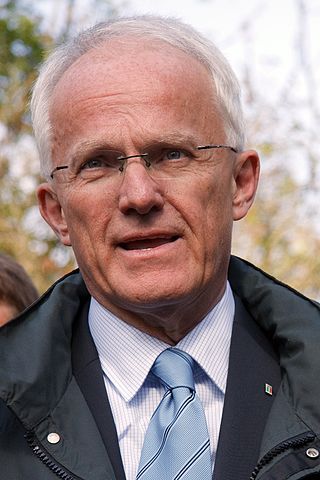
The 2010 North Rhine-Westphalia state election was held on 9 May 2010 to elect the 15th Landtag of North Rhine-Westphalia. The outgoing government was a coalition of the Christian Democratic Union (CDU) and Free Democratic Party (FDP) led by Minister-President Jürgen Rüttgers.

The 2011 Berlin state election was held on 18 September 2011 to elect the members of the 17th Abgeordnetenhaus of Berlin. The incumbent government consisting of the Social Democratic Party (SPD) and The Left lost its majority.

The 2014 Saxony state election was held on 31 August 2014 to elect the members of the 6th Landtag of Saxony. The incumbent coalition government of the Christian Democratic Union (CDU) and Free Democratic Party (FDP) led by Minister-President Stanislaw Tillich was defeated as the FDP lost all its seats. The CDU subsequently formed a grand coalition with the Social Democratic Party (SPD), and Tillich was re-elected as Minister-President.

The 2019 Thuringian state election was held on 27 October 2019 to elect the members of the 7th Landtag of Thuringia. The outgoing government was a coalition consisting of The Left, the Social Democratic Party (SPD), and The Greens, led by Minister-President Bodo Ramelow.

The 2020 Hamburg state election was held on 23 February 2020 to elect the members of the 22nd Hamburg Parliament. The outgoing government was a coalition of the Social Democratic Party (SPD) and The Greens led by First Mayor Peter Tschentscher.

The 2021 Berlin state election, ruled invalid in 2022 and repeated in 2023, was held on 26 September 2021, on the same day as the 2021 German federal election, which also had to be repeated in parts of Berlin due to irregularities. Thus, the 19th Abgeordnetenhaus of Berlin was elected twice.
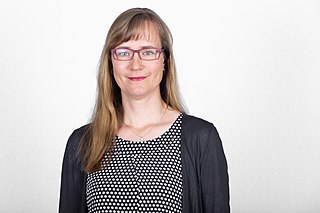
The 2021 Saxony-Anhalt state election was held on 6 June 2021 to elect the 8th Landtag of Saxony-Anhalt. The outgoing government was coalition of the Christian Democratic Union (CDU), Social Democratic Party (SPD), and The Greens, led by Minister-President Reiner Haseloff.

In Germany's federal electoral system, a single party or parliamentary group rarely wins an absolute majority of seats in the Bundestag, and thus coalition governments, rather than single-party governments, are the usually expected outcome of a German election. As German political parties are often associated with particular colors, coalitions are frequently given nicknames based on the colors included. Prominent political parties in Germany are the CDU/CSU (black), the SPD (red), the Greens (green), the Left, the AfD (blue), and the FDP (yellow).

The second Tschentscher senate is the current state government of Hamburg, sworn in on 10 June 2020 after Peter Tschentscher was elected as first mayor by the members of the Hamburg Parliament. It is the 30th Senate of Hamburg.

The 2023 Hessian state elections was held on Sunday October 8, to elect the 21st Landtag of Hesse. The outgoing government was a coalition of the Christian Democratic Union and The Greens, led by Minister-President Boris Rhein of the CDU. The 2023 Bavarian state election was held the same day.
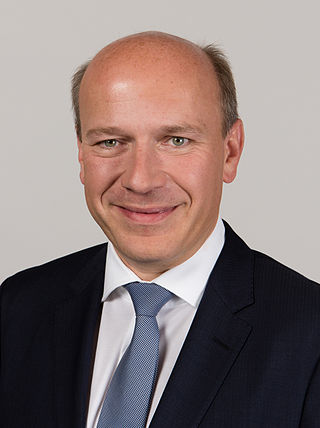
The 2023 Berlin repeat state election was held on 12 February 2023 to once again elect the 19th Abgeordnetenhaus of Berlin as the 2021 Berlin state election held on 26 September 2021 was declared invalid due to irregularities. Also affected were parts of the 2021 German federal election in Berlin, these were repeated on 11 February 2024.
A black-green or green-black coalition is a coalition between a conservative and/or Christian Democratic party and a green party.




















